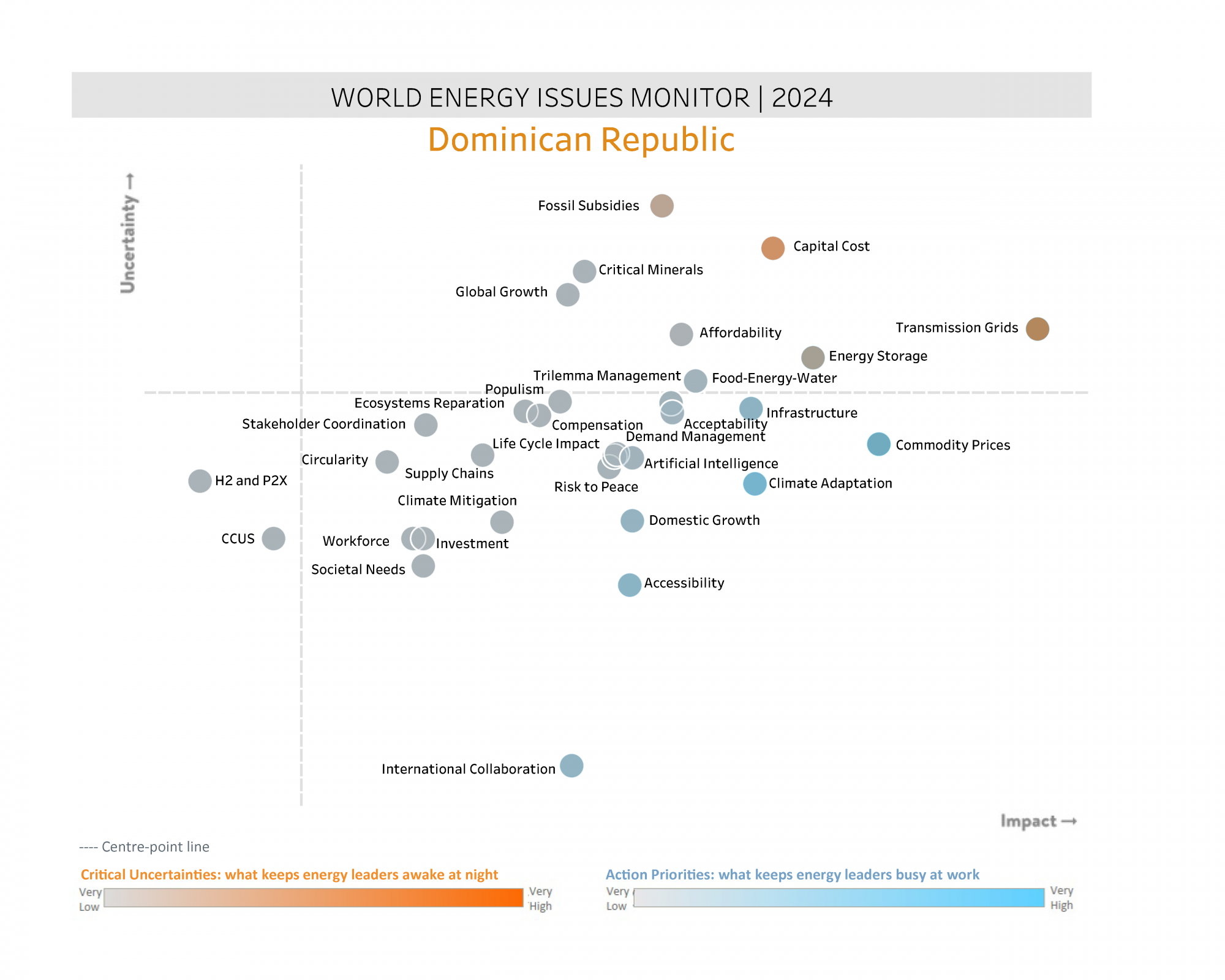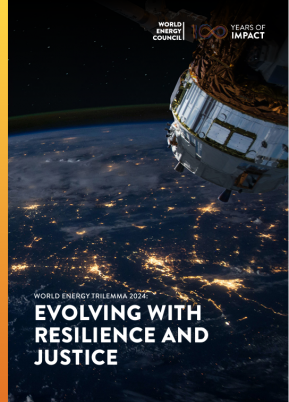Mr. George Reinoso has over 30 years of experience in the energy sector. Born in the Dominican Republic, he holds a degree in electrical engineering from the Universidad Católica Madre y Maestra in the Dominican Republic, a Masters in Electrical Power Systems from the Instituto Politécnico Nacional de México and an engineering degree from the Chalmers University of Technology in Sweden. Mr. Reinoso’s has experience in policy analysis and strategic planning for the energy sector, focusing on sector reforms, privatization, regulation, and investment analysis. George was the first executive director of the Dominican National Energy Commission (2001-2003) and is considered among the most qualified Dominican technicians in matters relating to electricity and energy efficiency. From 2003 to 2004, Mr. Reinoso was the Superintendent of Electricity and from 2009 to 2012 he advised the Dominican Corporation of State-Owned Electric Companies. George has extensive experience coordinating activities in the energy sector with the Inter-American Development Bank, World Bank and the United States Department of Energy. He is currently working with the Dominican Association of Industries to increase energy efficiency among local manufacturing industries using South-South Knowledge Exchange.
ENERGY IN THE DOMINICAN REPUBLIC

Changes Since the Last Iteration
The Dominican Republic is committed to promoting ambitious energy transition strategies that allow for earlier and deeper reductions in greenhouse gases. All actions implemented seek to make innovation, competitiveness and development compatible with the environmental commitments agreed at the national and international level.
The flow of foreign investment that has fuelled the country's recent rapid development of renewable energies has been driven by our nation's commitment to sustainable development. The Dominican Republic has been, and will continue to be, a regional leader in attracting foreign investment in the power sector.
Our achievement can be attributed to various factors, including supportive policies, tax incentives, streamlined administrative procedures, expedited approval procedures and effective coordination among various entities involved in permitting. As a result of these measures, the amount of energy generated from renewable sources has more than doubled between 2020 and 2024.
Government-backed reforms include strengthening the grid code to ensure reliable, affordable, and resilient electricity services; implementing effective mechanisms to improve the efficiency of distribution companies; providing substantial incentives to accelerate the integration of renewable energy sources into the power grid; and promoting energy-efficient initiatives to reduce greenhouse gas emissions.
Five-Year Country Trends
As a Small Island Developing Nation (SID), the Dominican Republic faces unique challenges that jeopardize its energy security. The threats posed by climate change are particularly concerning for economies like the Dominican Republic, which are more vulnerable to its effects. These climate impacts are expected to result in significant negative effects, economic losses greater than the global average, and increased risks for industries dependent on coastal ecosystems.
Thus, in its National Development Strategy, the Dominican Republic has significantly heightened its climate commitments. The country aims to reduce its greenhouse gas (GHG) emissions by 27% below business as usual (BAU) levels by 2030. This target includes a 20% reduction conditional on external financial support and an additional 7% reduction unconditionally financed through domestic resources.
We have prioritised securing technical and capacity-building support to ensure a just energy transition and facilitate investment in the new infrastructure and policies necessary for achieving long-term sectoral transformation.
GROWTH OF NON-CONVENTIONAL RENEWABLE ENERGY GENERATION
The share of power generation from renewable sources has more than doubled since 2020, driven by the strong promotion of renewable energies and close collaboration with key stakeholders in the fight against climate change. These efforts are part of a comprehensive strategy aimed at consolidating the pillars of a more sustainable and low-carbon economy.
GROWTH OF DISTRIBUTED GENERATION
The existing net metering program allows retail electricity customers with rooftop receive bill credits for injecting excess generation into the grid. As of December 2023, there were 14,256 participants in the Net Metering Program, with a total installed capacity is 338.57 megawatts. Over the past four years, distributed generation has grown by 405%.
Also, since COVID, the development of electric mobility has been growing, encompassing vehicles, buses, motorcycles, and more. The number of charging stations nationwide has increased, with virtually all major highways have charging stations.
CEPM is making significant progress towards achieving zero emissions through the CEPM Zero initiative. This includes the construction of over 200 MW of solar projects in the eastern part of the country, the electrification of Saona Island using renewable energy, and the upcoming inauguration of the Caribbean’s first electric vehicle charging station before the end of 2024, among other projects.
All sectors, including industrial, hotel, banking and others, have embraced the energy transition as a core part of their identities. They are raising awareness through advertising campaigns and support for urban and industrial waste management initiatives. The agricultural sector is also actively participating in the use of non-polluting organic fertilizers and insecticides, as well as a rational use of irrigation.
REGULATORY CHANGES
The Comisión Nacional de Energía (CNE) published Administrative Resolution CNE-AD-0003-2023 in February 2023, mandating that energy storage must be included in renewable energy projects based on specific capacity ranges. In December 2023, construction began on the first renewable energy project incorporating energy storage, with a capacity of 24.8 MW and 4 hours of daily storage.
Additionally, as part of a technical assistance grant from the U.S. Trade and Development Agency (USTDA) to the Superintendent of Electricity (SIE) of the Dominican Republic, a regulatory roadmap for energy storage is currently being developed.
To further promote energy efficiency, Energy Efficiency Decree 158-23 on Energy Savings and Efficiency was issued for all public institutions. A Bill on Energy Savings and Efficiency has been submitted to the Congress of the Republic.
Insights from the 2024 Issues Survey Results
Scaling Up Energy Transitions Anticipating the need to develop new skills and capabilities is imperative for ensuring successful adaptation. It is essential to recognize that there will be a gap between the supply and demand of qualified human resources for specific tasks. To prevent this, we must guide next generations towards acquiring the skills required for the new jobs emerging in relation to the energy transition. This entails implementing a strategy to enhance the capacity of educational institutions to offer specialized careers tailored to these evolving needs.
Policy and Ecosystems Transparency, cooperation and knowledge exchange promoted by the government are key in leveraging opportunities for capacity development and promoting sustainable development locally and globally. Through collaborative efforts with various stakeholders, the government can amplify the impact of its catalytic initiatives and foster an enabling environment for private investment in clean energy projects, thereby facilitating the transition towards a more sustainable and resilient energy system.
Climate Risk and Resilience Understanding climate risks, geological hazards and vulnerabilities of the electricity system is critical. Strengthening the national capacity for disaster risk management is essential to mitigate the impact of climate change, Additionally, developing the climate resilience of electrical infrastructure in the Dominican Republic (DR) is crucial.
Resource Allocation and Active Management Enhancing access to low-cost financing and exploring novel approaches to attract the required capital are vital for achieving our carbon neutrality goals while ensuring the affordability of our energy transition.
Acknowledgements
Dominican Republic Member Committee
Downloads

Dominican Republic World Energy Trilemma Country Profile 2024
Download PDF
World Energy Trilemma Report 2024
Download PDF
World Energy Issues Monitor 2024 Dominican Republic Country Commentary
Download PDF







